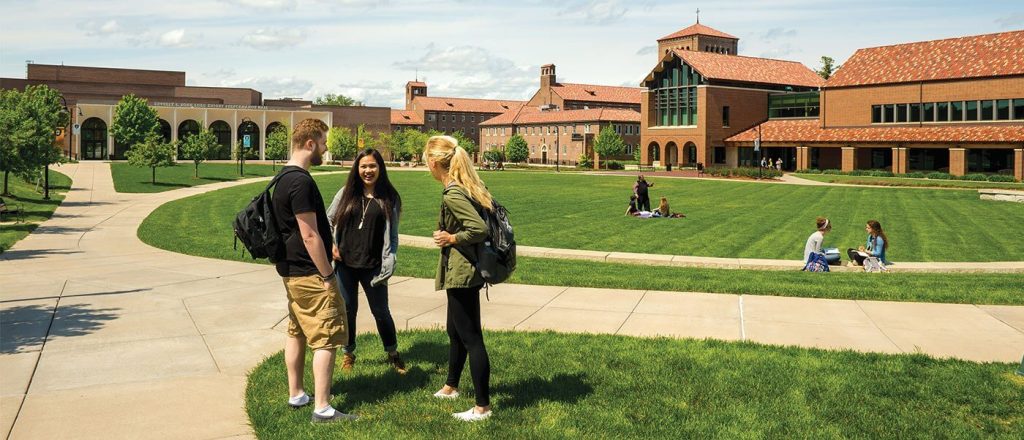Classical education prioritizes deep learning through discussion-based courses. Small class sizes led by faculty mentors emphasize student engagement and provide an exciting, thought-provoking environment. This approach encourages problem-solving, robust conversation, analytical thinking, and ethical reasoning. Research shows that students who have learned in this environment are better prepared for personal and professional success. [1] More importantly, this way of learning equips us to pursue our calling as Christians (Romans 12:1-4).
Graduates of a Christ-centered classical program are differentiated from their peers in at least five key ways:
1. Intellectual Agility & Critical Thinking:
Engaging in discussion challenges students to use higher level thinking, analyzing what they encounter and articulating what they discover to their classmates. Discussions help students grapple with alternative perspectives, cultivating the ability to consider and respond to ideas in real time. These skills fuel our joyful obedience to the Great Command (Mark 12:29-31) and provide real-world application and value. [2]
2. Emotional Intelligence:
Christian classical education prioritizes personal and spiritual formation, not simply intellectual development. Discussions frequently reveal opposing perspectives, challenging students to cultivate self-awareness, emotional regulation, understanding, and effective communication. Students also learn how to couple courage in conviction with sympathy in feeling and courtesy in speech. Not only are these valuable soft skills for the workplace, they reflect a person’s ongoing sanctification (Colossians 3:12-17; 1 Peter 3:13).
3. Confidence & Leadership Development:
Research demonstrates that discussion-based programs enhance verbal and written communication skills. [3] Cohort models (where students progress through a series of courses, together) provide students the opportunity to improve along others whom they will grow to know and trust. Grounded in a biblical understanding of identity (Galatians 2:20), students learn to how to present ideas persuasively, engage with different viewpoints, respond to failure, navigate group dynamics, lead discussions, and delegate authority—critical skills for all of life.
4. Broad-based learning:
The diverse subject matter represented in a theologically-oriented, liberal arts Great Books curriculum exposes students to a variety of disciplines – economics, psychology, literature, biology, physics, philosophy. This not only fuels worship (Psalm 111:1-2), it provides students the opportunity to make connections across fields and approach problems with greater insight. Such broad-based learning is increasingly valuable in today’s quickly changing, hyper-specialized workforce. [4]
5. Adaptability:
Automation and artificial intelligence are reshaping industries in countless ways. Classical education equips students as life-long learners, enabling them to re-skill and transcend specific job functions. More importantly, it challenges students to consider the nature and ends of technology, equipping them to make wise and ethical use of innovation in an increasingly complex world.
The Classical Christian Honors College provides these benefits while allowing students to pursue any of UNW’s more than 50 areas of study. Our Great Books & Ideas program is a unique way of satisfying most of UNW’s core curriculum requirements. This allows you to earn a highly marketable, honors-transcripted, 40-credit second major alongside nursing, engineering, biology or any other degree of your choice.
Want to earn unique skills for the marketplace? Space is limited! Apply today.
[1] Ling Li, “Reskilling and Upskilling the Future-ready Workforce for Industry 4.0 and Beyond.” Information Systems Frontiers 26, (2024): 1697–1712. Accessed Feb 17, 2025, https://doi.org/10.1007/s10796-022-10308-y [2] Ibid. See Table 1. [3] Jay R Howard, Discussion in the College Classroom. (Hoboken, NJ: Wiley, 2015), 6. [4] Ling Li, “Reskilling and Upskilling, ” Accessed Feb 17, 2025, https://doi.org/10.1007/s10796-022-10308-y


